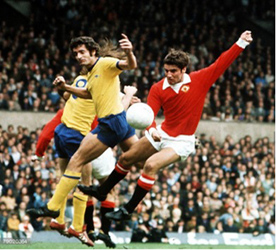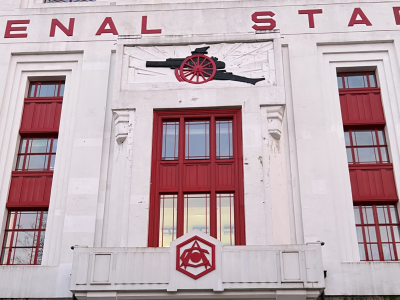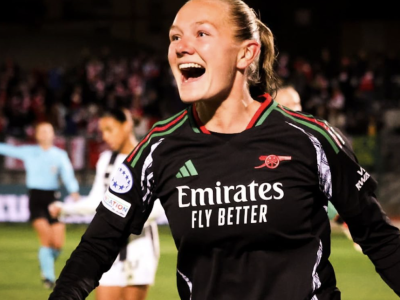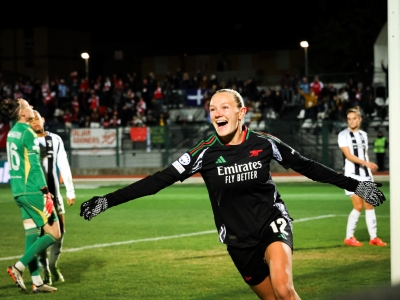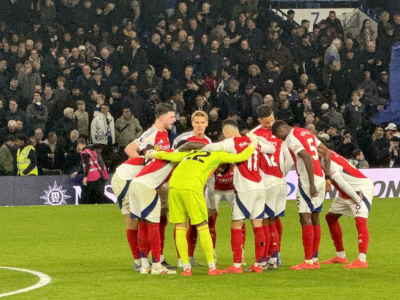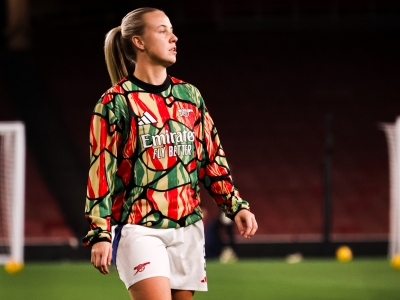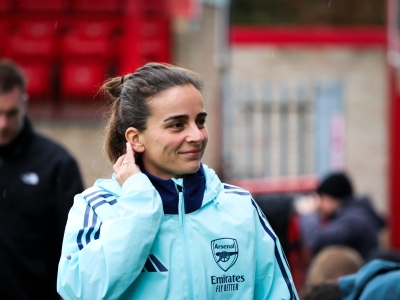Many of Arsene Wenger’s critics over the years have often used his record at Old Trafford as a stick to beat him with, however it’s worth wondering just how many of these critics are actually aware of Arsenal’s historical record when it comes to playing Man United away. From my calculation, in 121 years’ worth of visits to Manchester United, Arsenal have only ever won eighteen times against them away from home and interestingly, with five victories over United at Old Trafford Arsene Wenger – easily Arsenal’s most successful ever manager when it comes to visiting the ground - is responsible for just under a third of them, despite also incurring some of the heaviest ever defeats there. Even taking Wenger’s longevity in the role into account, it’s interesting to note how none of Arsenal’s other managers have ever really fared particularly well up there.
Major managerial figures such as Bertie Mee, Don Howe and George Graham all have an Old Trafford record on a par with minor managerial figures in Arsenal’s history such as Harry Bradshaw, Phil Kelso, George Morrell, Leslie Knighton, George Swindin and Billy Wright, in only ever having won there just the once, while Herbert Chapman and Terry Neill have the joint second best record having both won there twice. Highbury greats such as George Allison and Tom Whittaker in contrast however never once picked up a win at Old Trafford, despite the fact that for most of that period Arsenal had a much better side than United.
Arsenal’s first visit away visit to Man United came in October 1894 in the old Second Division, when Arsenal were known as Woolwich Arsenal and United then known as Newton Heath. It would also be the first meeting between the two sides and took place at Newton Heath’s then home ground - Bank Street - in front of just 4,000 fans. During the closing years of the eighteenth century however, Bank Street would not be a happy hunting ground for the Gunners with Newton Heath inflicting a 1-5 defeat on Arsenal for two seasons out of three. The last time Arsenal played them under the name of Newton Heath, Arsenal inflicted their first away defeat against them in March 1902 with a 1-0 win. A month later however, Newton Heath had changed their name to Manchester United.
Manchester United won their first ever League title under the management of Ernest Mangnall in 1907/08, Arsenal’s away trip to United that season took place in November with United inflicting a 2-4 defeat on the Gunners with United’s Sandy Turnbull scoring all four goals. The following year Arsenal managed a thumping 4-1 away win over United at Bank Street, however the following October was the Gunners last visit to Bank Street, where United inflicted a 0-1 defeat on Arsenal. Man United moved to Old Trafford in February 1910 and on Arsenal’s first visit they were thumped 0-5 on Boxing Day of that year. United won their second title at the end of their first full season at Old Trafford in 1910/11. Then as now however, there would follow a decline resulting from the departure of a successful title winning manager as Mangnall left Old Trafford.
Such was their decline that by the end of the 1914/15 season Man United were languishing around the relegation zone. On Good Friday 1915, United stood third from bottom – one point from Chelsea at the foot of the table and above Notts County on goal average, while Tottenham Hotspur were just one point above them. That day they met thirteenth place Liverpool at Old Trafford. What occurred was that players from both sides conspired to fix the game as a 2-0 win for Man United. The Liverpool Daily Post said of the game that: ‘A more one-sided first half would be hard to witness’. That victory was enough for United to avoid relegation, finishing third from bottom with Tottenham two points behind at the foot of the table and Chelsea second from bottom one point behind.
The plot however was uncovered, but the clubs themselves were not punished and the result stood as it was adjudged that the players had hatched the conspiracy themselves. Three players from Man United and four from Liverpool were banned for life for their involvement in the matter, which included Man United’s star player Sandy Turnbull, who scored 90 goals in a career spanning 220 games with United. The rest of Sandy Turnball’s life though turned out to be quite short in duration as he was killed in the Battle of Arras during the First World War in 1917, aged just thirty two. Arsenal’s first visit to Old Trafford after the First World War came in February 1920, which resulted in a 1-0 win for the Gunners. Arsenal’s next victory there would be Herbert Chapman’s first visit in September 1925, when the Gunners took both points with a 1-0 win resulting from a goal by Jimmy Brain.
Arsenal’s first League title season in 1930/31 saw a 2-1 win at Old Trafford in October, with goals from Jack Lambert and Joey Williams. As Arsenal finished the season on top, Man United finished rock bottom and were relegated to the second tier and were to spend five of the next six seasons in the old Second Division. Despite this, Arsenal still lost the last two away fixtures before the Second World – United inflicted a 0-2 defeat on Arsenal in October 1936 and 0-1 defeat in December 1938. Man United’s first home game against Arsenal after the war was also the first of the Matt Busby era, which came in September 1946 with United inflicting a 2-5 defeat on Arsenal. The fixture was played at Maine Road due to bomb damage which occurred to Old Trafford during the war.
Arsenal’s next away trip to United would be the highest ever attendance for a League match, with 83,260 turning up to Maine Road to watch a 1-1 draw with Jack Rowley on target for Man United while Reg Lewis scored for the Gunners. The final time that Arsenal travelled to Maine Road to play Man United came on New Years’ Day 1949, a game in which United inflicted a 0-2 defeat on the Gunners. Despite playing their home games ‘away’ for the first three seasons after the war, Man United were runners up in the League three times in a row. United returned to Old Trafford and Arsenal’s first visit back there since the Second World War came on Boxing Day later that year. Again, the Gunners suffered another 0-2 defeat.
In the close season of 1949/50, Man United undertook a nine day tour of the USA, during which their star forward Charlie Mitten had been poached by Independiente Santa Fe of Columbia’s ‘El Dorado’ League which for a brief period broke away from FIFA and poached much of the World’s best talent. Mitten’s flouting of the ‘retain and transfer’ system to Matt Busby’s annoyance led to him acquiring the moniker of the ‘Bogota Bandit’. Arsenal’s next visit to Old Trafford came as Cup holders, visiting Old Trafford in the fifth round of the FA Cup in 1951, United however again inflicted another defeat, with Arsenal losing 0-1.
In 1951/52, Arsenal visited Old Trafford on the final game of the season. Five days earlier, Arsenal blew the chance to draw level on points with United at the top of the table by losing 1-3 to West Brom away at the Hawthorns. This meant that an injury hit Arsenal required a seven goal win in order to overhaul United, however a hat-trick for Jack Rowley inflicted a 1-6 defeat on the Gunners, giving United their first title in over forty years. The title would be Arsenal’s the following year, on route Arsenal secured a point against the reigning Champions at Old Trafford in early September with a 0-0 draw. United were to win the title back to back in 1955/56 and 1956/57 and on route to the latter thumped Arsenal 2-6 at Old Trafford one year prior to the fateful Munich air crash. Three of United’s goal scorers would perish in that flight - among the goal scorers that day were Duncan Edwards and Tommy Taylor, as well as Johnny Berry and Liam Whelan who bagged two each, while David Herd bagged two for Arsenal.
Arsenal’s last visit to Old Trafford prior to the Munich air crash would come in September 1957. Here all three of their goal scorers would be fatalities at Munich, as goals from Tommy Taylor, David Pegg and two for Liam Whelan meant a 2-4 defeat for the Gunners. David Herd would again be on target for the Gunners, as was Mike Tiddy. Arsenal’s first visit to Old Trafford post-Munich came in October 1958, which resulted in a 1-1 draw with Gerry Ward on target for the Gunners and Dennis Viollet scoring for United. Man Utd suffered a Post-Munich decline in the seasons which followed, however still managed to eliminate Arsenal from the FA Cup in the fourth round in a 0-1 defeat at Old Trafford in January 1962 with Maurice Setters scoring for United.
Three months later however, Arsenal finally secured their first win at Old Trafford since 1930 with a 3-2 win in in the League. George Eastham and Alan Skirton were on target for the Gunners, with the third an own goal. Thirteen months on saw a repeat of the same score line, as Man United were battling relegation as well as looking to an upcoming FA Cup Final. Two Denis Law goals were not enough to prevent a 3-2 victory for the Gunners, with goals from Joe Baker, Alan Skirton and Geoff Strong. Man United’s league form turned around the following season, finishing runners up four points behind Liverpool. By 1964/65, United were knocked out of the FA Cup with a 0-1 defeat to Leeds in the Semi Final replay at the City Ground (with the ref knocked out by a fan during a post-match pitch invasion).
A month later however they were challenging Leeds again for their first Post-Munich title going, into the final Saturday of the season one point behind Leeds United at the top with Chelsea just one point behind them. Chelsea were eliminated from the race as a result of losing 6-2 away at Burnley with seven first teamers dropped for breaking a curfew, while Leeds United won 3-0 away at Sheffield United. Man United’s game with reigning champions and FA Cup Finalists Liverpool was captured by Match of the Day, which resulted in a 3-0 win for United. There were however two fixtures still to fit in within three days and forty eight hours on Arsenal visited Old Trafford.
A wonder goal for George Best and two for Denis Law gave United a 3-1 win, (their seventh victory in a row in the League) while George Eastham was on target for the Gunners. Leeds meanwhile travelled to bottom of the table Birmingham table, who few thought could pull off a result, though actually went 3-0 up by half-time, though Leeds pulled it back to 3-3. The two sides were level on points, though Man United – who played away at Aston Villa a further forty eight hours later – would have to have lost by nineteen goals in their final game in order for Leeds to win the title. This news was enough to lead to a mammoth pitch invasion by the Old Trafford crowd in celebration. In their final game of the season, Man United lost 1-2 but still took the title.
United’s defence of the title in 1965/66 saw inconsistent form as they were beaten 1-5 away at Spurs on Match of the Day in August, only to win by the same score line at Old Trafford in the corresponding fixture at Old Trafford later on in the season. Arsenal’s visit Old Trafford in March 1966 would also be captured on Match of the Day, ten days after George Best’s heroics away at Benfica. Best earned the moniker of ‘El Beatle’ as a result, though briefly appeared once on Top of the Pops during a performance from the Rolling Stones (the show was actually filmed in a disused Church in Dickenson Road for three years between its start in 1964 to 1967 – this one of the few pieces of footage from that era not to be wiped altogether!).
United that day inflicted a 1-2 defeat on the Gunners with goals for Denis Law and Nobby Stiles, while Tom Walley would be on target for the Gunners. The Gunners visit in October 1967 would also feature on Match of the Day, a John Aston goal inflicting a 0-1 defeat and a fifth straight victory over Arsenal at Old Trafford. Man United won their first European Cup in May 1968 and Arsenal’s first visit to Old Trafford after this saw the Gunners take their first point away from Old Trafford for five and a half years from a 0-0 draw in October 1968. It’s fair to say that United declined significantly in the years which followed the 1968 European Cup win, finishing as low as eleventh in the League in 1968/69.
The Busby era also came to an end after twenty four years, with Wilf McGuiness taking over the following season. United were languishing as low as tenth position in the table by the close of the decade, however a 4-1 away win over Liverpool at Anfield showed that they were capable of pulling off a great result. Ahead of Arsenal’s visit to Old Trafford in January 1970, Arsenal were hoping to create their own version of George Best in spending £100,000 in bringing a Scot of Italian descent - Peter Marinello - in from Hibernian. Such were the hopes of Marinello emulating George Best’s fame that in early 1970 he managed a guest appearance on Top of the Pops judging a dancing competition.
His debut came away at Man United in January 1970, putting Arsenal one up with a terrific solo goal in front of the Stretford End. It was from around this period that Arsenal started to put together an undefeated run of games against United at Highbury that lasted for around fifteen years, with such formidability that between 1970 and 1979 Arsenal would never score less than three against United. Arsenal however would still struggle to beat United at Old Trafford and here were to suffer a 1-2 defeat with goals from Willie Morgan and United’s own upcoming star of Italian descent - Carlo Sartori – who had been born in Italy, though raised in Manchester.
Carlo left United in 1973 for Bologna and spent most of the next decade playing for lesser Italian sides such as Rimini and Trentino, before retiring in 1984 and returning to Manchester to run his father’s Knife-Sharpening business. Man United finished 1969/70 in eighth position, however qualified for England’s first football tournament to be sponsored – the Watney Cup. The basis for qualification had been open to the two highest scoring teams in each division, who failed to be either promoted or qualify for Europe. What also made it unique was that the offside rule was only applicable in the area. It also was through this competition that Man United became the first side to compete in a penalty shootout to decide a tie, in their Semi Final clash with Terry Neill’s Hull City.
The honour of the first kick taken in a shoot-out fell to George Best, while the infamy of missing the first spot kick fell to his fellow Holy Trinity member, Denis Law. United won the shootout to face Brian Clough’s Derby County in the final, but would suffer a 4-1 hammering at the Baseball Ground. A week before Christmas, Arsenal achieved their first victory at Old Trafford in eight years. In a shock and awe performance, Arsenal went in 3-0 up at half time with goals from Frank McLintock, George Graham and Ray Kennedy. Carlo Sartori pulled one back in the second half, but it wasn’t enough to stop a 3-1 win for the Gunners.

